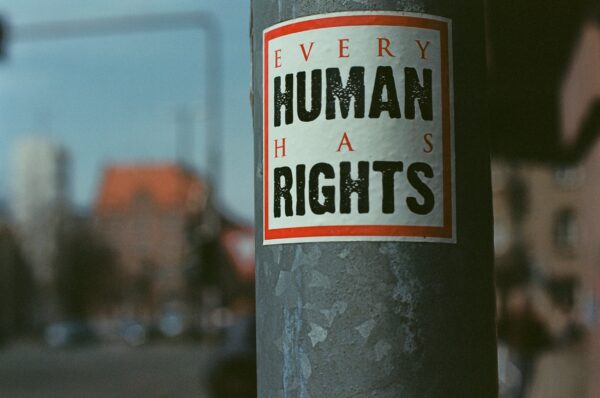25 January 2024 –
By Andrea Rocca, Transparency International and Betina Pasteknik, UNCAC Coalition, Co-chairs of the UNCAC Coalition Human Rights & Corruption Working Group.
Amnesty International, Transparency International and the UNCAC Coalition hosted a special event on corruption and human rights, alongside GIZ, Switzerland, OHCHR, and UNODC at the CoSP10, which took place from 11 to 15 December 2023 in Atlanta, USA.
It is now widely acknowledged that there is a clear and intrinsic link between corruption and human rights. This has been recognised in Geneva, where the UN Human Rights Council, its special procedures, and UN human rights treaty bodies have discussed the negative human rights impact of corruption for several years. However, much less attention is paid to it within UNCAC mechanisms and UNODC. The two sets of UN institutions – one focused on human rights in Geneva and the other on anti-corruption efforts in Vienna – have, so far, largely worked in silos. And even in Geneva, much more work needs to be done to effectively address the linkages between corruption and human rights. This is why we convened the special event at CoSP10, hoping to initiate discussions on how to bridge existing gaps and enhance collaboration between the two fora – as challenging as this may sound.

We left the event feeling somewhat optimistic for a few reasons. The first was the interest in the event. It took place while delegates were kept busy with negotiations on UNCAC resolutions, which were still in full swing, and yet the room was over capacity, with many standing at the back and with numerous government officials in attendance. Interest in the topic was also confirmed by the very positive response to the newly established UNCAC Coalition Working Group on Corruption and Human Rights, which convened informally in-person on the margins of CoSP10. Launched in October 2023, the Woking Group already consists of almost 150 members from civil society organisations and academia from across the globe.
The second reason for some optimism is that Morocco, the core sponsor and pen-holder of the biennial Human Rights Council’s (HRC) resolution on the negative impact of corruption on human rights, appears to be invested in seeing progress. Ambassador Azzeddine Farhane, who joined the panel, relayed Morocco’s intention to work towards the establishment of a new UN Special Rapporteur on corruption and human rights, an initiative which Transparency International has advocated for in the past and which we continue to believe would help drive the work of the HRC forward.
The third reason for optimism stems from notable developments within OHCHR and UNODC. Speaking at the event, Maria Jose Veramendi of OHCHR shared that OHCHR has drafted a strategy for its work on corruption and human rights going forward, focused on two main pillars: integrating a human rights approach to anti-corruption work, and better investigating and addressing the human rights impact of corruption. We believe that, if fully funded and implemented, this strategy will help generate evidence on how to tackle the negative impact of corruption on human rights more effectively. While UNODC has less on its records so far, in December 2023, it published a Pledge for the Human Rights 75 Initiative, which includes commitments to mainstreaming human rights in anti-corruption capacity-building activities and technical assistance. Furthermore, the two institutions have appointed focal points – both of whom spoke at the event – tasked with driving these processes forward and acting as liaisons between the two bodies.
Civil society must ensure that speeches and pledges are followed by action, and can contribute to fostering collaboration between institutions in Geneva and Vienna. We see three key areas where we need to push for progress:
- Information from UN human rights bodies must feed into UNCAC processes, and vice versa: Transparency International’s written submission on UNCAC Article 13 and civic space explored how the findings of country reviews on Article 13 carried out by UNCAC Implementation Review Mechanism (IRM) diverge significantly from the findings of UN human rights bodies on the same countries, pointing to a serious information gap;
- Building expertise on corruption in UN human rights bodies, and on human rights in UNCAC bodies: this is necessary to ensure that corruption-related recommendations by UN human rights bodies are more specific, action-oriented and consistent. Simultaneously, this will help UNCAC bodies incorporate a human rights based approach to anticorruption, creating a more comprehensive and effective framework; and,
- Civil society organizations’ participation in UNCAC fora must be strengthened by integrating good practices developed in human rights bodies: to mention just two examples, civil society groups can attend and contribute to informals on Human Rights Council resolutions, and civil society reports are part of review processes such as the Universal Periodic Review.
Finally, we must acknowledge that UN institutions are not the only ones working in silos: we also need to look at how civil society works. We must start bridging the gap between human rights and corruption in our own strategies and foster more collaboration across the anticorruption and the human rights community. These are some of the goals of the UNCAC Coalition Working Group on Corruption and Human Rights, and we hope you will join us in our efforts.



